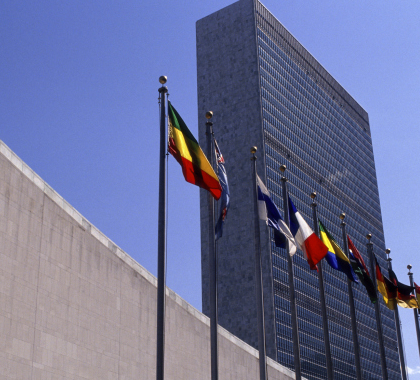U.S. Rep. Blaine Luetkemeyer (R-MO) introduced a bill in the House of Representatives that would bar all U.S. contributions to U.N. climate initiatives and programs, including ending funding for the Intergovernmental Panel on Climate Change and the Green Climate Fund (GCF).
Luetkemeyer introduced House Resolution 673, the No Tax Dollars for the United Nations’ Climate Agenda Act, one week after then-President Barack Obama directed the U.S. Department of State to divert $500 million in funds intended for other programs to the U.N. GCF on January 17, just days before Donald Trump was sworn into office.
House leadership referred Luetkemeyer’s bill to the Foreign Affairs Committee, where it awaits a hearing.
‘New Political Environment’
Marlo Lewis Jr., a senior fellow with the Competitive Enterprise Institute, say the legislation is not surprising considering the 2016 election results.
“We’re in a completely new political environment,” said Lewis. “Things are possible now that might not have happened on the Hill before November 8th. This legislation might actually pass the U.S. House of Representatives.
“What [the bill] proposes are things on the wish list of many people who you might say have been a part of the skeptic community or who produce affordable energy for a living,” said Lewis.
Illegal Funding Decision
Lewis says Obama’s GCF funding should never have been allowed in the first place, because the U.N. Framework Convention on Climate Change, under which the GCF was established, accepted the “State of Palestine” as a signatory to the treaty. U.S. law forbids any taxpayer dollars being sent to international organizations that recognize Palestine as a sovereign state.
“For example, defunding the U.N. Framework Convention on Climate Change is something current law actually requires because the U.N. framework convention is not just a treaty but the organization that administers that treaty, and under U.S. law, any U.N. agency that recognizes Palestine as a state or grants statehood status to any non-state actor is barred from receiving any money from federal agencies.
“The United States did this with [the U.N. Educational, Scientific and Cultural Organization], for example, when [UNESCO] admitted the Palestinian Authority as a state, and so the United States no longer makes contributions to UNESCO,” Lewis said. “This law is not in any way referenced in this bill, and since the bill doesn’t really explain its rationale, it’s hard to know whether that entered into [Luetkemeyer’s] thinking at all.”
Michael McGrady ([email protected]) writes from Colorado Springs, Colorado.




